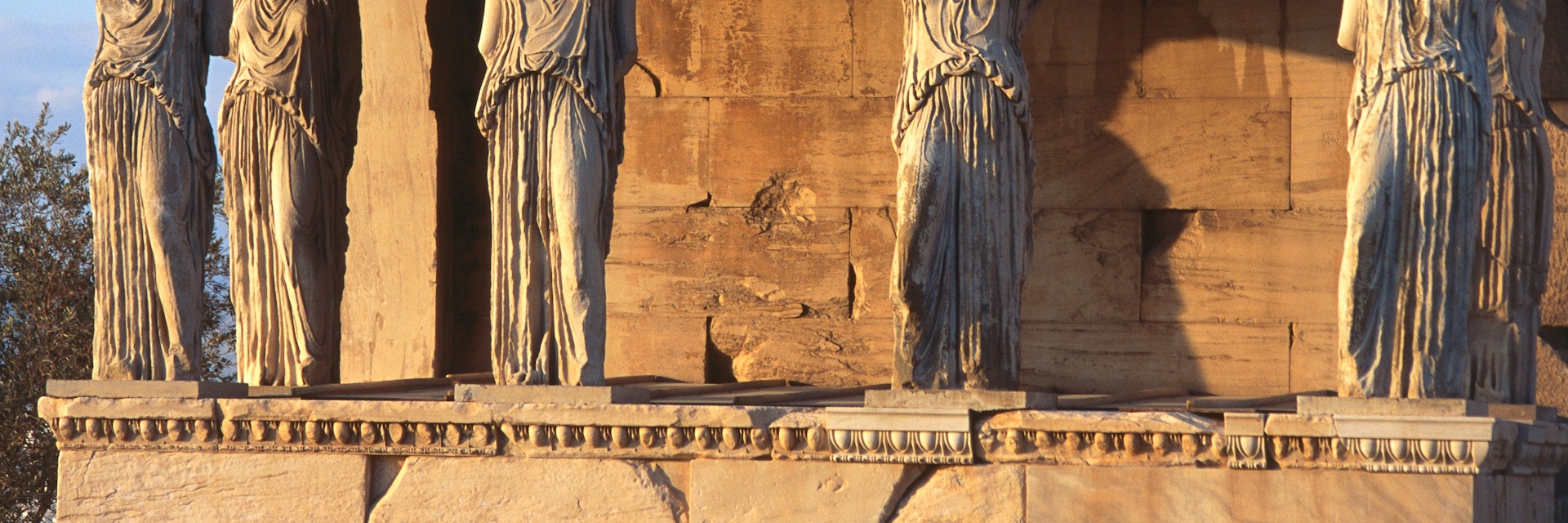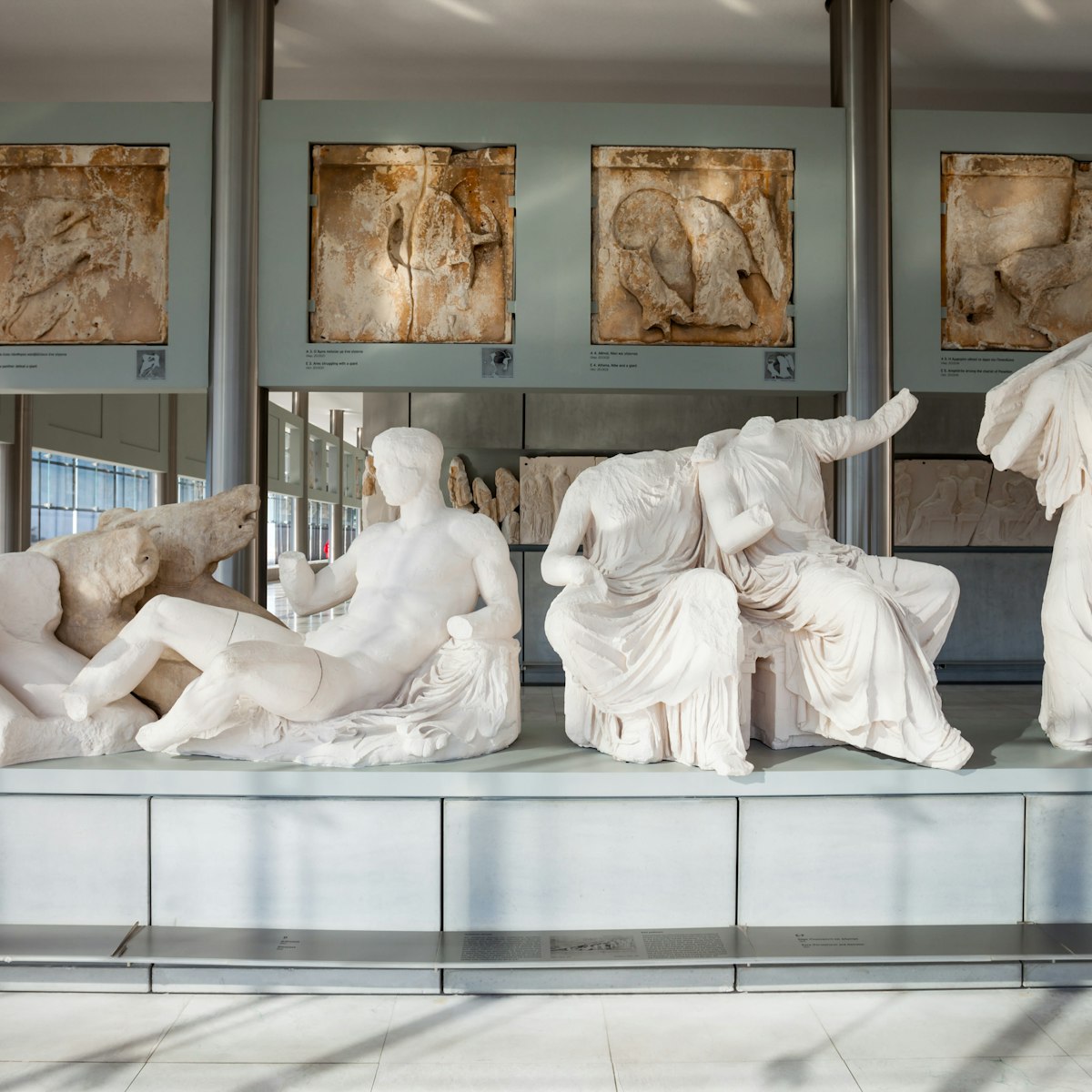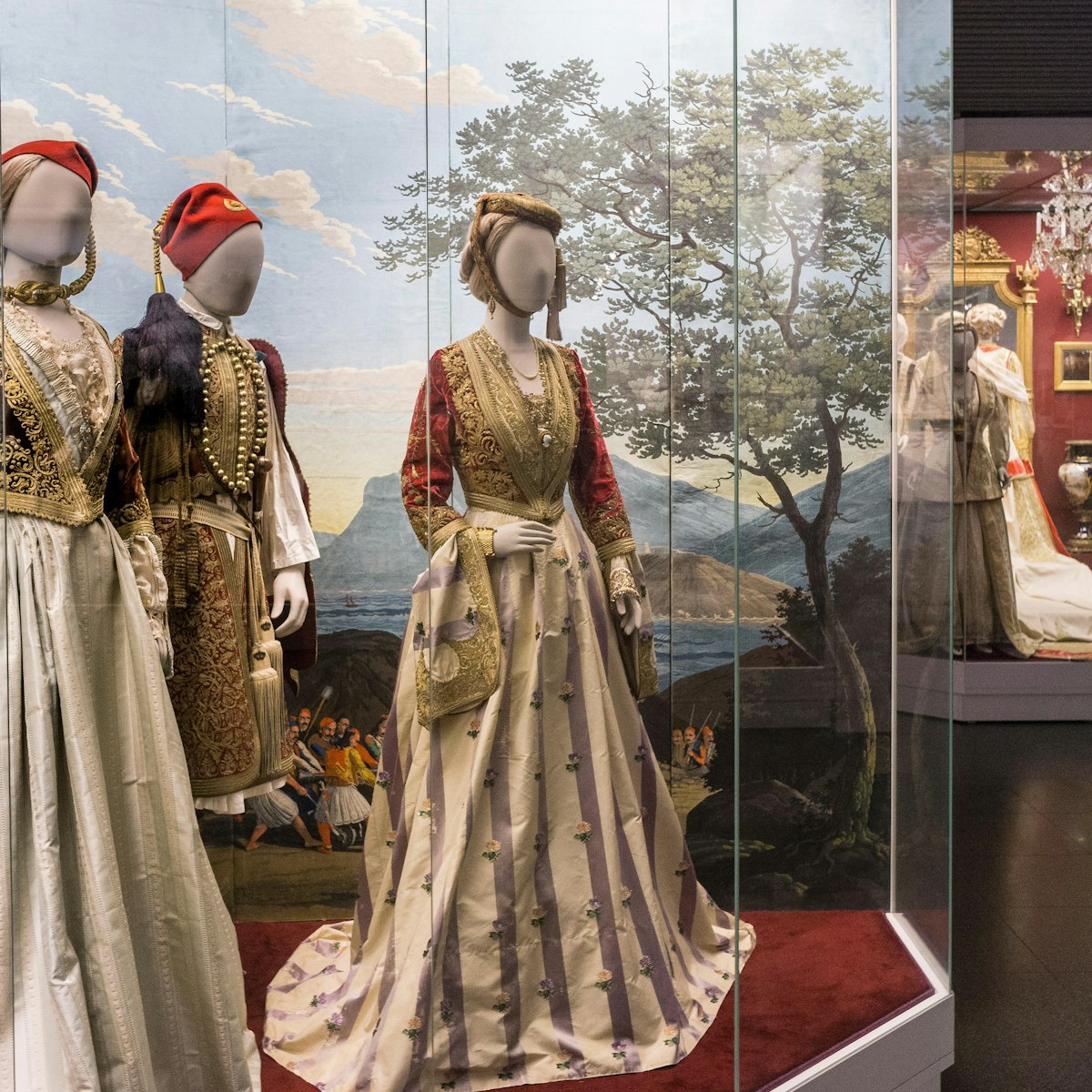Although the Parthenon was the most impressive monument of the Acropolis, it was more showpiece than working sanctuary. That role fell to the Erechtheion. Named after Erechtheus, a mythical king of Athens, the temple housed the cults of Athena and Poseidon. It was here that, so the myths told, the god and goddess had a contest for the city's affections. Poseidon struck the ground with his trident, making a salt spring, but Athena won by producing an olive tree.
The Erechtheion was part of Pericles' plan for rebuilding after the Persian attack, but the project was postponed after the outbreak of the Peloponnesian Wars. Work did not start until 421 BC, eight years after his death, and was completed around 406 BC.
It is the most unusual monument of the Acropolis, a supreme example of Ionic architecture ingeniously built on several levels to compensate for the uneven bedrock. The main temple is divided into two cellae – one dedicated to Athena, the other to Poseidon – representing a reconciliation of the two deities after their contest.
In Athena's cella stood an olive-wood statue of Athena Polias holding a shield adorned with a gorgon's head. It was this statue on which the sacred peplos (shawl) was placed at the culmination of the Great Panathenaic Festival. In front of the temple grows an olive tree, held to be a cutting of the one that sprang forth at Athena's behest when she won the contest against Poseidon. The current tree was planted in 1952, from a cutting made during WWII to protect the tree from the Germans.
The southern portico is supported by six larger-than-life maiden columns, the Caryatids, modelled on women from Karyai – modern-day Karyes, in Lakonia, hence the name. Those you see are plaster casts. The originals (except for one removed by Lord Elgin, now in the British Museum) are in the Acropolis Museum.
Poseidon's cella, the northern porch, is accessible by a small set of stairs against the boundary wall. It consists of six Ionic columns; the fissure in the floor is supposedly left either by Poseidon's trident in his contest with Athena, or by Zeus' thunderbolt when he killed the mythical king Erechtheus.
Except for a small temple of Rome and Augustus, which is no longer in existence, the Erechtheion was the last public building erected on the Acropolis in antiquity.








